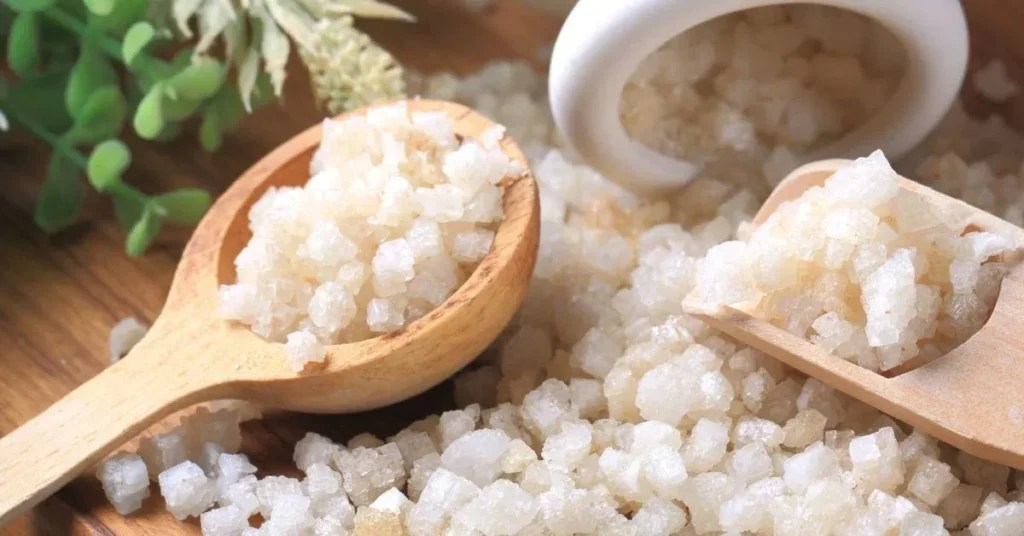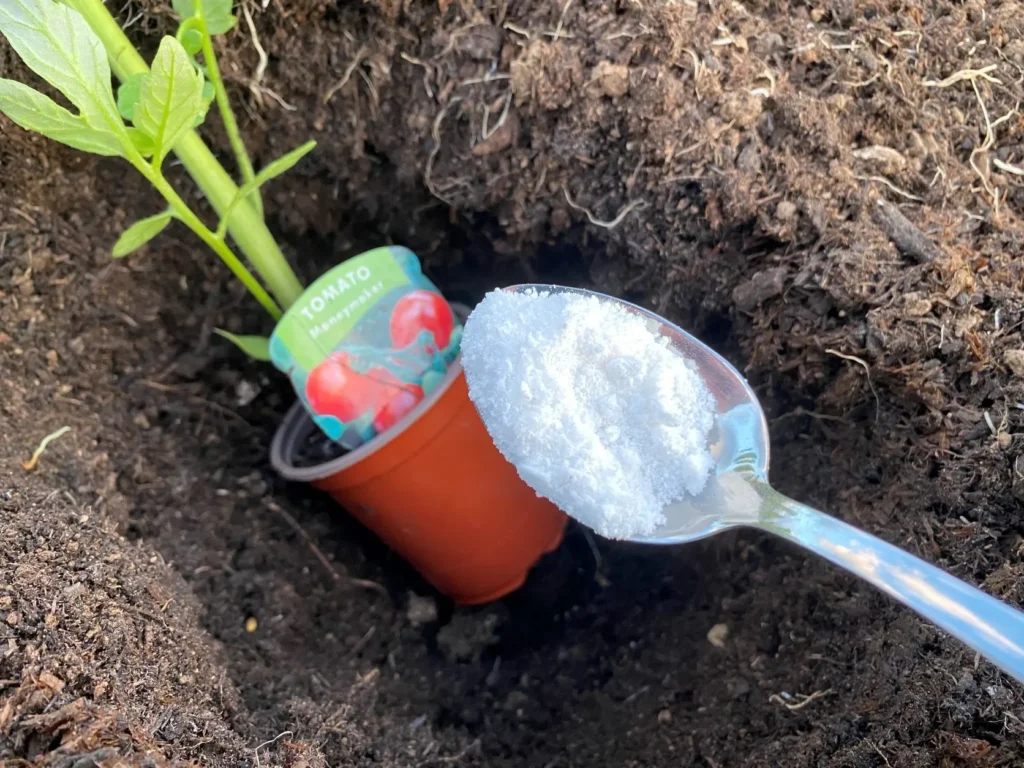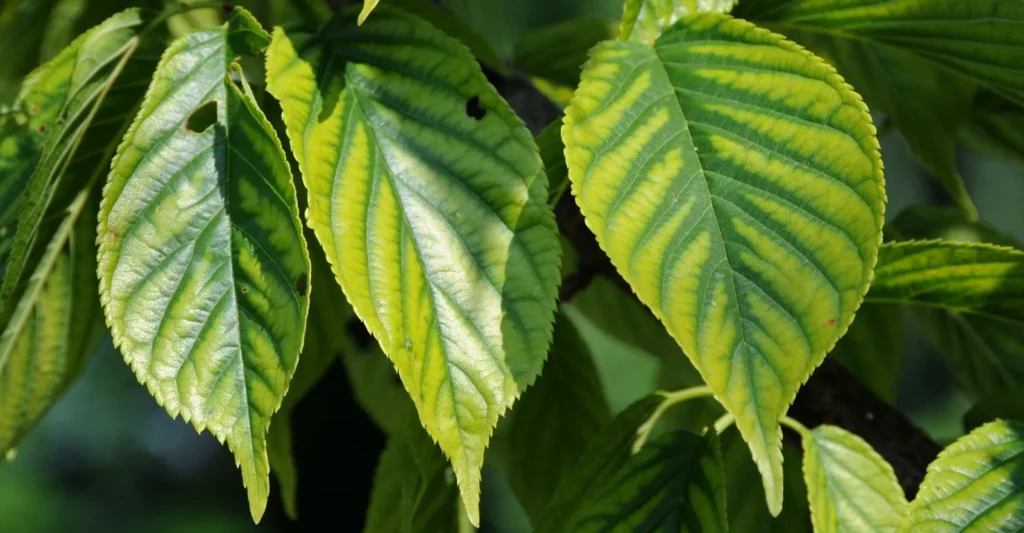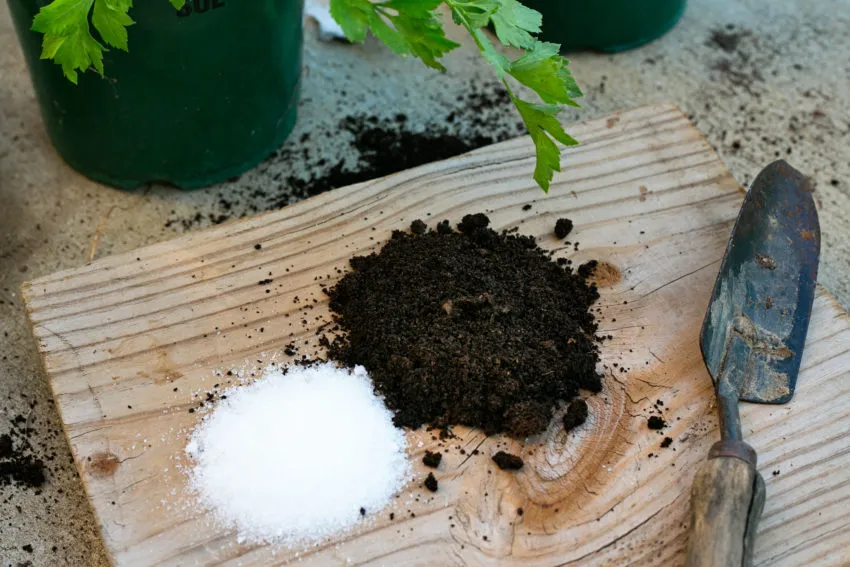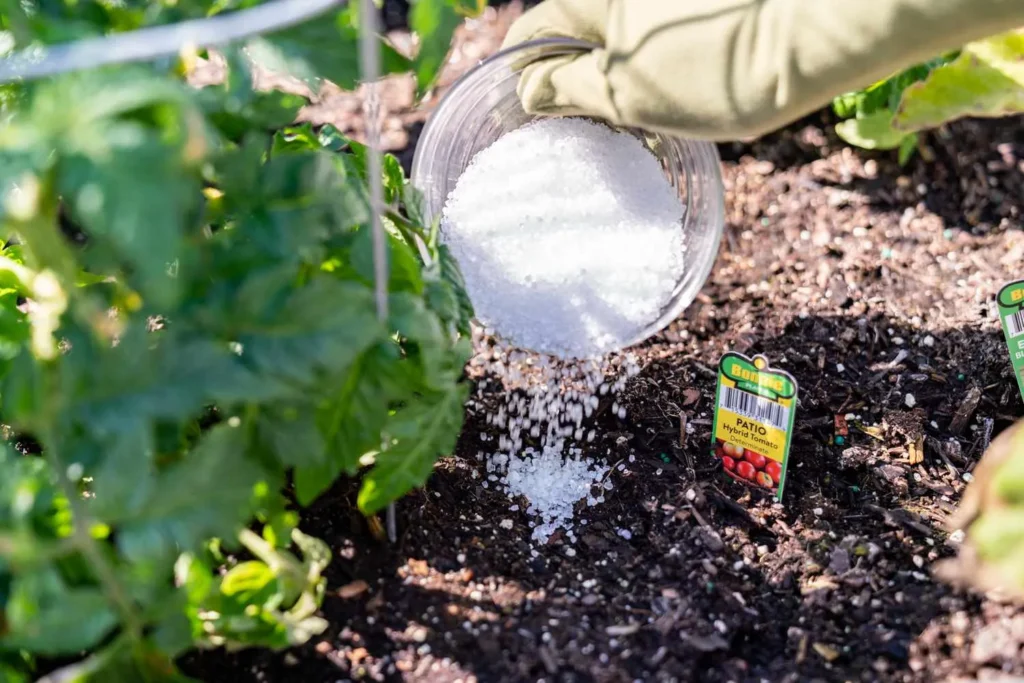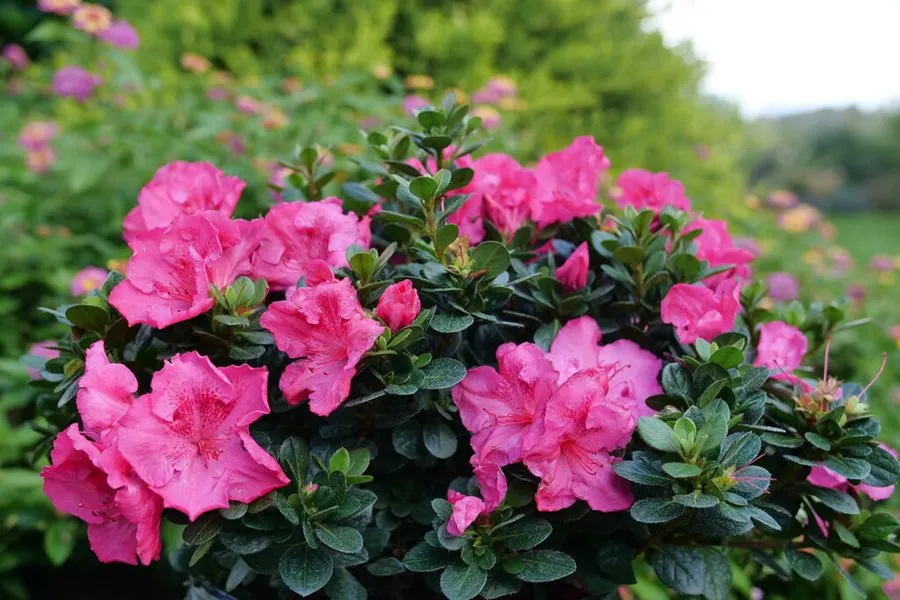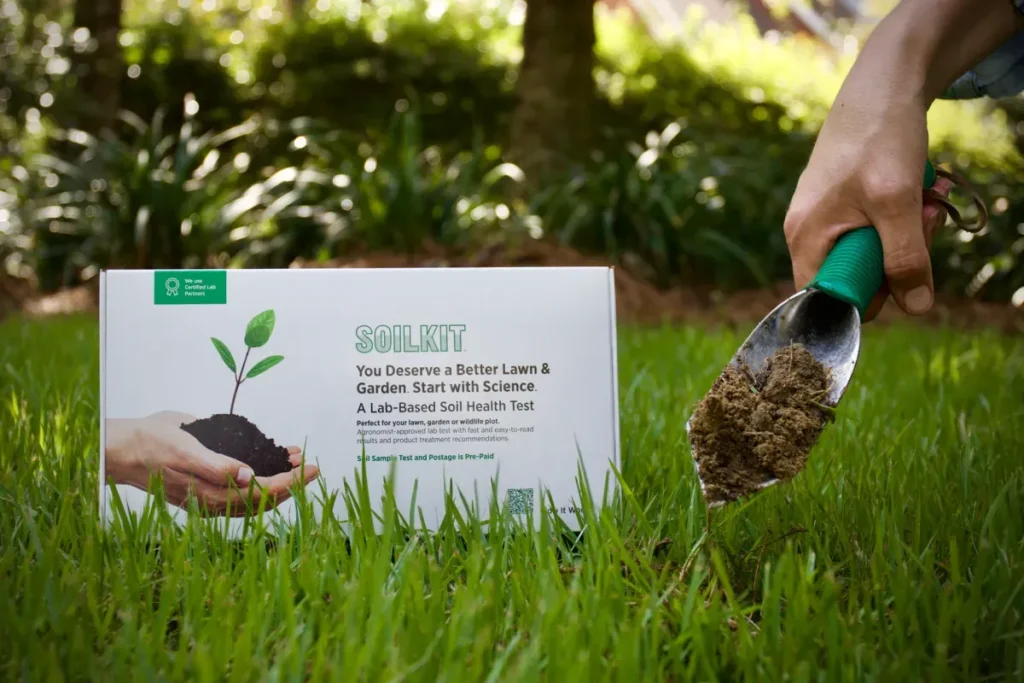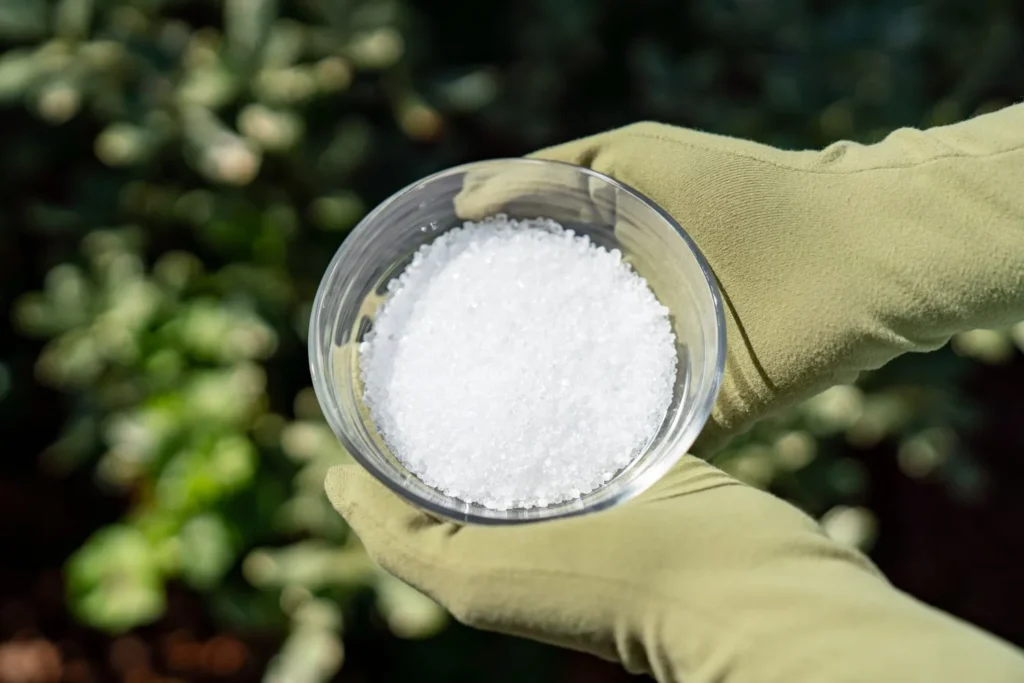
As we all know, epsom salts are a very friendly fertilizer for almost any type of plant. But did you ever wonder whether will epsom salt kill plants?
To be honest, yes, epsom salt can kill plants. But it’s not very common, and it can only happen if you use it too much or in the wrong way.
So, you cannot just trust this plant friend and apply it whenever you want. You should follow the right ways to apply epsom salts to any type of plant.
Also, it is essential to have an idea about when and how epsom salts can be dangerous for your plant.
Will Epsom Salt Kill Plants?
Epsom salt, also known as magnesium sulfate, can be beneficial for plants in certain situations.
It contains magnesium and sulfur, both of which are important nutrients for plant growth. However, using too much Epsom salt or using it in the wrong way can harm plants.
If you apply too much Epsom salt to the soil, it can increase the salt content of the soil and make it difficult for plants to absorb water and nutrients. This can eventually lead to the death of the plant.
Additionally, if you apply Epsom salt directly to the leaves of a plant, it can burn the leaves and cause damage.
Therefore, while Epsom salt can be beneficial for plants in the right quantities and application methods, it can also be harmful if used improperly.
How Can Epsom Salt Be Dangerous for Your Plant?
Epsom salt is generally safe for most plants when used in moderation and according to package instructions. However, overuse or misuse of Epsom salt can be harmful to plants.
Here are the facts that make Epsom salt dangerous for plants.
1. Overuse
No doubt that overuse of Epsom salt can lead to an excessive build-up of magnesium and sulfur in the soil. And it can be toxic to plants.
Eventually, this can cause the leaves of the plant to turn yellow or brown, and the plant may stop growing or even die.
2. Incorrect Application
Epsom salt should be applied to the soil around the base of the plant. You should not apply it directly to the leaves.
If Epsom salt is applied directly to the leaves, it can cause leaf burn or other damage.
3. Plants That are Sensitive
Epsom salt contains salt, and plants that are sensitive to salt, such as azaleas and rhododendrons, may be harmed by its use.
In such cases, epsom salts can cause leaf scorching, stunted growth, or even plant death.
4. Plants with Magnesium or Sulfur Toxicity
Some plants are naturally high in magnesium or sulfur and may not benefit from the additional nutrients provided by Epsom salt. In fact, the excess nutrients can lead to toxicity in these plants.
While Epsom salt can be a useful tool for promoting plant growth and health, it should be used in moderation and according to the package instructions.
If used incorrectly or on plants that are sensitive to its effects, Epsom salt can be dangerous for the plant and cause more harm than good.
How Much Epsom Salt for Plants to Use?
As you’ve learned, the most common reason that makes epsom salt kill your plants is overusing it. So, you should first learn how much Epsom salt to use for plants.
The amount of Epsom salt you should use for your plants depends on several factors. For instance, the type of plants you are growing, the soil conditions, and the specific needs of your plants.
As a general guideline, you can use the following amounts:
1. Epsom Salt for Potted Plants
Mix 1 tablespoon of Epsom salt with 1 gallon of water. Water your plants with this solution once per month.
2. Epsom Salt for Garden Plants
Sprinkle 1 cup of Epsom salt per 100 square feet of soil. Mix the Epsom salt into the soil before planting or water it after planting. Repeat this every few weeks during the growing season.
It’s important to note that using too much Epsom salt can be harmful to your plants. So it’s best to follow the package instructions and use it in moderation.
Additionally, it’s always a good idea to consult with a gardening expert if you’re unsure about the appropriate amount of Epsom salt to use for your specific plants.
What Plants Don’t Like Epsom Salt?
Most plants can benefit from Epsom salt when used in moderation and according to package instructions.
However, there are some plants that may not respond well to Epsom salt or may even be harmed by its use. Here are some examples:
1. Succulents
Usually, succulents are adapted to grow in nutrient-poor soils and may not require the additional nutrients provided by Epsom salt. In fact, over-fertilization can cause succulents to become waterlogged and rot.
2. Ferns
As we know, ferns prefer acidic soil conditions, and the use of Epsom salt can raise the pH level of the soil, making it less acidic.
3. Plants that Prefer Alkaline Soil
Epsom salt is acidic and can lower the pH level of the soil. Plants that prefer alkaline soil, such as lavender and lilacs, may not respond well to the use of Epsom salt.
4. Plants That Are Sensitive to Salt
As I have said before, epsom salt contains salt, and plants that are sensitive to salt, such as azaleas and rhododendrons, may be harmed by its use.
5. Plants That are not Actively Growing
Epsom salt is most effective when plants are actively growing and producing new leaves and flowers.
If you apply Epsom salt to plants that are not actively growing, such as those that are dormant or stressed, it may not be as effective and could even harm the plant.
If you’re unsure whether your plants would benefit from Epsom salt, consult with a gardening expert or do some research on the specific needs of your plants.
Also read: Can cosmos grow in shade?
Tips to Use Epsom Salt
Here are some tips for using Epsom salt in your garden or for your potted plants:
1. Test Your Soil
Before applying Epsom salt, test your soil to determine whether it is deficient in magnesium or sulfur. You can purchase a soil testing kit at your local garden center or online.
2. Use in Moderation
Epsom salt should be used in moderation, as overuse can be harmful to plants. You should follow package instructions.
Make sure to use no more than 1 tablespoon of Epsom salt per gallon of water for potted plants and no more than 1 cup per 100 square feet of soil for garden plants.
3. Apply at the Right Time
Usually, epsom salt is most effective when applied during the growing season, when plants are actively growing and producing new leaves and flowers.
4. Water after Application
After applying Epsom salt, you need to water your plants thoroughly to help the nutrients soak into the soil and reach the roots.
5. Avoid Direct Contact with Foliage
Epsom salt can burn plant foliage if applied directly to the leaves. To avoid this, apply the Epsom salt to the soil around the base of the plant.
6. Combine with Other Fertilizers
Usually, epsom salt can be combined with other fertilizers, such as compost or a balanced fertilizer, to provide a complete nutrient package for your plants.
Also read: Natural Fertilizers for ZZ Plants
FAQs
Q: Which plants like Epsom salts?
A: Epsom salt is a natural source of magnesium and sulfur, two important nutrients that are essential for plant growth. Here are some plants that are known to benefit from Epsom salt:
- Tomatoes
- Roses
- Peppers
- Citrus trees
- Houseplants
Q: Is Epsom salt good for potted plants?
A: Yes, Epsom salt can be beneficial for potted plants as well as garden plants. Potted plants can be especially vulnerable to nutrient deficiencies because the nutrients in the potting soil can become depleted over time.
Epsom salt can help replenish the magnesium and sulfur levels in the soil, which are essential nutrients for plant growth.
Q: Can Epsom salt damage the soil?
A: Yes, overuse of Epsom salt can damage the soil. It can cause the soil to become too acidic, which can harm the beneficial microorganisms that live in the soil. This can lead to nutrient deficiencies and poor plant growth.
Q: Can Epsom salt kill beneficial insects?
A: Yes, using Epsom salt can kill beneficial insects, such as earthworms, and beneficial microbes, which are important for maintaining healthy soil.
These organisms can be harmed by the buildup of salt in the soil, which can also affect the health of plants.
Q: Can Epsom salt harm the environment?
A: Yes, using Epsom salt in large quantities can harm the environment. When excess Epsom salt is applied to the soil, it can leach into the groundwater or nearby bodies of water, which can cause harm to aquatic life.
Additionally, it can contribute to nutrient pollution, which can lead to algal blooms and other water quality issues.
borshon96
Recommended

9 Effective Tips for Balcony Gardens for Beginners

Best Homemade Fertilizer: Banana Peel for Plants


Philodendron Neon Heartleaf: Your Most Obedient Houseplant


